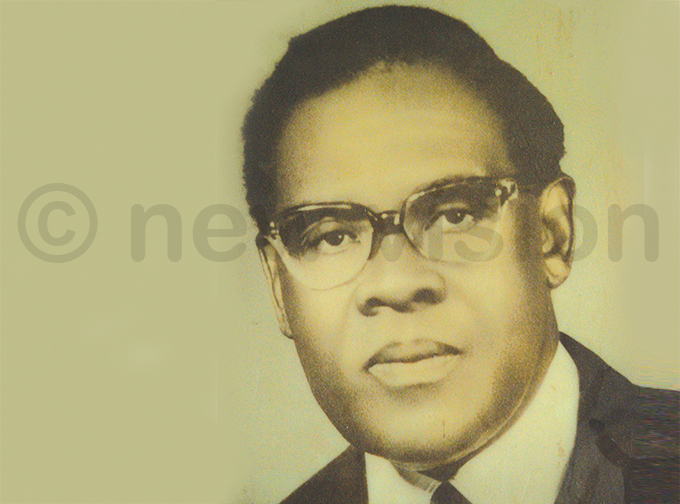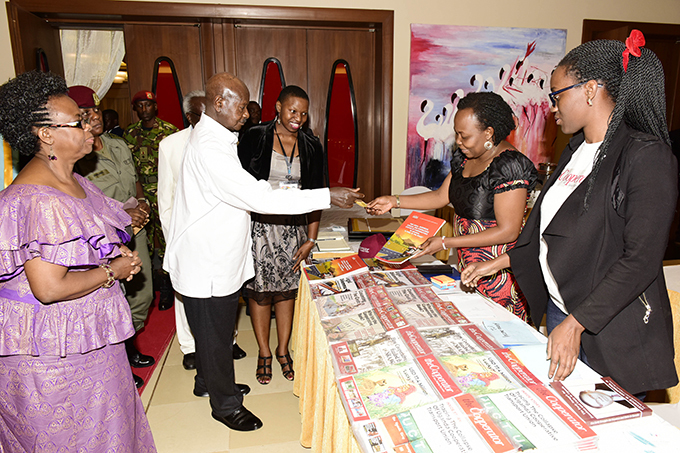Musaazi gave direction when Africa was leaderless - Museveni
The President observed that I. K. Musaazi played a leading role in Uganda, alongside other personalities in the region, such as the late Mwalimu Julius Nyerere
President Yoweri Museveni has said that Ignatius Kangave Musaazi is in the same category as South Africa's Nelson Mandela who filled the vacuum when Africa was leaderless and down.
According to the President, it is not possible to mention people like Musaazi without talking about Africa, "because they were the glue that united the continent to put up resistance in the face of colonialism."
Museveni made the remarks Friday at Sheraton Kampala Hotel, during a fundraising dinner for the I. K. Musaazi Innovations Institute. Musaazi's family together with Uhuru Institute for Social Development organised the dinner.
The sh231m project will be erected on a 30-acre piece of land and is aimed at shaping young people who are future leaders.
Speaking to the audience that comprised of Musaazi's family and friends, former deputy Chief Justice Steven Kavuma, Ugandan academics, 2nd Deputy Prime Minister Kirunda Kivejinja and different NGOs, Museveni said Musaazi's relevance can be traced from the struggles of Africa to free itself from the colonial grip.
"You cannot talk of I. K. Musaazi without talking about Africa; that is how he gains his relevance. For colonialism to happen, Africans got the first visit of Vasco da Gama, and 364 years later, another group of Europeans came with the likes of James Hannington.
 Ignatius Musaazi created Uganda's first political party. File Photo
Ignatius Musaazi created Uganda's first political party. File Photo
This means that Africa had an entire 364 years of warning that some people were coming and still we did not prepare, colonialists found us sleeping and our kings engaged in small wars against each other. What sort of people are we? By 1900, the entire Africa with the exception of Ethiopia was conquered, that in itself is a dangerous fact," he said.
The President said that the good thing is that Africans don't die easily, and this is how the likes of Musaazi came in.
"Musaazi came in because Africa was in danger, the chiefs had failed to defend us, some like Kabalega and others tried but it was too late," he added.
The President observed that Musaazi played a leading role in Uganda, alongside other personalities in the region, such as the late Mwalimu Julius Nyerere of Tanzania who formed TANU in 1954 and the late Jomo Kenyatta of Kenya.
He was pleased to note that China, Russia and the Europeans' Committee for Freedom supported the freedom movement on the African continent.
"If you do not salute such people how do you build the country?" he asked.
Museveni said he salutes Musaazi because he filled a leadership vacuum, forming the first political party in Uganda, which he used to mobilise the masses. He also commended Musaazi for engaging other tools to mobile resistance.
"I salute him because he filled the vacuum. Africa was leaderless and down. He was one of those who came to lift Africa up. In his mission, Musaazi used different tools; Political tools through a political party (the Uganda National Congress), Economic tools through cooperative and labour unions.
So when we talk about the end of colonization, we refer to two factors that gave us back the independence, the first is greed by colonial masters, who during the scramble for Africa ended up fighting each other and losing grip of Africa and the second aspect is people like I. K. Musaazi, who took up the resistance," he said.

He made a sh100m cash pledge towards the construction of the institute with a cash delivery of sh10m. The fundraising dinner realised sh31m.
He also promised to "sell a few of my cows" to contribute towards this innovations institute so the family can start the institute not only as an acknowledgment of Musaazi's contribution to this nation, but also to serve as an inspiration to young people and continuation of Musaazi's wishes for this country.
Kivejinja described Musaazi as the grandfather of Uganda's peace, urging the family to put up a gallery of Musaazi's activities that shaped Uganda.
"Every nation has heroes, every country has those who change people's lives, and those are the people who organise others to bring about peace. Musaazi was that person for Uganda," Kivejinja said.
Elizabeth Musaazi, the chairperson of the I. K. Musaazi Memorial Foundation said the institute will carry on the unique legacy of Musaazi.
"Being buried at the heroes' corner in Kololo is well-deserving for Musaazi, but an institute will be even better," she said.
The institute, according to Elizabeth Musaazi will consider six disciplines including; self-help and patriotism, leadership and mind-changing, corporative philosophy, commercial farming, leather tuning, innovation think-tank, credit union and financial inclusion.
Leonard Okello, the Chief Executive Officer of Uhuru Institute, the organisers of the fundraising dinner, said that the institute is planned to support, among other things, a revival of the cooperative movement in Uganda.
He noted that such facilities are needed in Africa adding that the late Musaazi worked with the cooperative and the labour movements during the fight against colonial rule in Uganda.